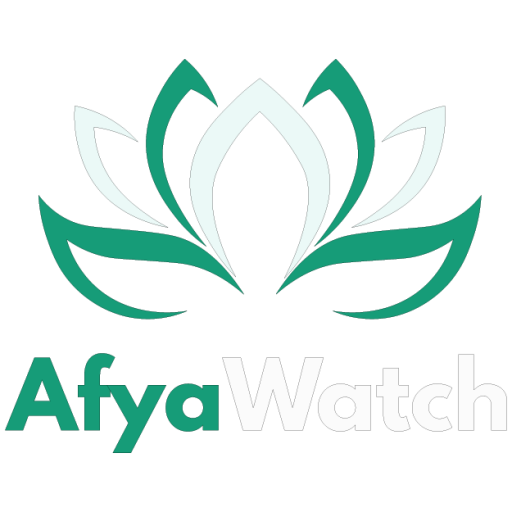The world of travel is changing. Vaccines are determining who goes where. Kenya is no different. Vaccine passports will be introduced in the country.
Tourism CS Najib Balala says Kenya will introduce Covid-19 vaccination passports by 2022.
This means you could soon require proof of Covid-19 vaccination to enter and exit Kenya or transit to another country.
The passports will be used by visitors arriving at ports of entry and airports to facilitate entry into the country.
He added that the country had no option but to make the hard decisions to restrict entry into the country.
“We have come to a stage and time when we must make difficult decisions,” said the CS.
The move, he said, would protect citizens from further spread of Covid-19 due to the entry of new variants said to be responsible for the current fourth wave that is being reported in countries like the UK, India and Brazil.
“To protect our industry and get back into full economic activity and profitability, we must the necessary steps,” he said.
A total of 50,000 hospitality industry staff are targeted in the vaccination campaign.
Mr Balala said the passports will not be very different from the yellow fever certification required before international travellers are granted access to most countries.
“The Covid-19 passport will not be the first of kind and should not be a cause for worry. This is a universal trend that we have already seen with the yellow fever vaccinations,” said the CS.
He said the process was likely to be rolled out next year.
“We believe that all the systems required for the passport’s smooth operations will be in place by 2022,” said the CS.
His remarks come in the wake of an unprecedented economic downturn coupled with regulatory roadblocks that have paralyzed most activities in the hospitality industry.
At present, hotels, bars, clubs, restaurants and eateries are currently barred from providing full time services, with only take away options allowed.
Up to 80 per cent of the hotel industry’s revenues in the country have been lost since the onset of the Covid-19 pandemic in the country with the first case announced in March 2019.
Several countries are already using the passports, albeit with widely differing policies and implementation protocols.
For instance, Israel began issuing ‘green passes’ in February 2021 to their vaccinated citizens. The move was designed to allow for less restricted internal movement and access to businesses such as to gyms or theaters.
Other countries, such as Bahrain and China have begun issuing digital vaccine passports to their vaccinated citizens to empower them to travel internationally with minimum hassle.
Proof of Covid-19 vaccination in countries such as Georgia, Estonia, Seychelles and Poland will exempt incoming travellers from certain travel restrictions such as mandatory Covid-19 testing or staying in quarantine until the test results are known.
Many other countries including Kenya, the United Kingdom, Malaysia, Singapore, Greece, Denmark, the EU, and the U.S. are considering the use of COVID-19 vaccine passports, for both internal or international movement.
As part of its mandate under the International Health Regulations (IHR), the WHO is coordinating member states’ efforts to provide a public health response to the international spread of diseases.
Yellow fever is currently the only disease listed in the IHR for which countries can require proof of vaccination as a condition of entry. Covid-19 vaccination could be included in an updated version of the IHR.
In the US, the Centres for Disease Control (CDC) recently released guidance with the recommendation that fully vaccinated individuals can resume non-essential travel safely within the U.S.
The CDC also stated that fully vaccinated individuals can consider international travel subject to maintaining recommended safety measures.
Although the U.S. currently requires all air passengers coming to the U.S. to have a negative COVID-19 test, federal officials have also indicated that vaccination may be required for entry into the U.S. for incoming travelers in future.
Individual states are however taking different sides on the issue. Several have launched vaccine certificates or are actively exploring their use. New York was the first state to introduce a COVID-19 vaccine certification pass.
With this pass, only certified vaccinated individuals will be allowed to access certain social activities like accessing supermarkets, concerts or sporting events.
Kenya is Aggressively Looking For Vaccines
Like many other African countries, Kenya does not have enough vaccines. On its part, the ministry of health says it is considering buying the Pfizer and Johnson and Johnson vaccines.
According to Health CS Mutahi Kagwe, the country is making the move in a bid to keep its Covid-19 vaccination program going after experiencing supply hitches with the Astra Zeneca vaccine.
Speaking at his Afya House office on April 21, 2021, Mr Kagwe said the government was pursuing acquisition of one million doses of vaccines each from Pfizer as well as Johnson and Johnson respectively to boost its vaccine stick that consists of Astrazeneca vaccines.
He made the remarks while answering questions from the media after receiving a donation of personal protective equipment (PPEs) worth Sh 2.3 million donated by Multi Choice Kenya .
On the possibility of the country getting its second batch of Astra Zeneca vaccines in May or June, Mr Kagwe said he would not be holding his breath as the Indian Covid-19 situation had not eased up.
“Remember that the Johnson and Johnson vaccine only consists of one dose as compared to the Moderna, Astra Zeneca and Pfizer vaccines. We are still not in a rush to start mixing the vaccines among the population,” he said.
Mr Kagwe attributed the drop in the positivity rate being witnessed in the country in the last two weeks to increased adherence to the preventive measures among Kenyans.
He expressed hopes that the positivity rate would drop even more drastically to dip below the 5 percent required to unlock the country’s five disease zone counties for full-fledged economic activities.
Kagwe said the spikes were being witnessed in the Counties of Muranga, Uasin Gishu, Siaya and Nyeri were likely to complicate the fight against the pandemic.
He added that the ministry had already spoken to the affected counties’ governors to undertake county-specific measures and slow down the spread of the viral disease.











